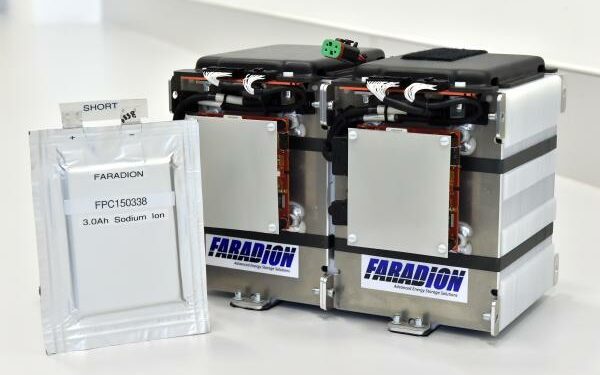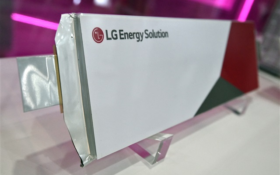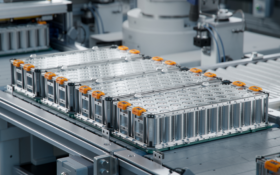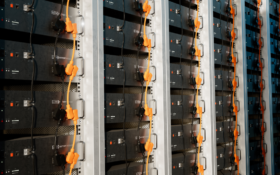The world’s first sodium-ion powered vehicle was demonstrated by British battery R&D company Faradion as it progresses its technology ready for market.
The proof of concept vehicle is a bicycle equipped with sodium-ion pouch cells achieving a specific energy of more than 140 Wh/kg.
Faradion is hoping to get the cathode specific energy up to the 200wh/kg by 2017 to compete with market leading lithium-ion batteries.
The battery pack is made up of four modules, designed and manufactured by Williams Advanced Engineering. Each module contained 12 2.9V cells, connected in series to produce 250Wh nominal power.
Designed to stay in peak condition when fully discharged for up to six months before re-charging the company is selling it as a safer transportation alternative to lithium-ion.
Most of the company’s presentation centred around competing with lithium-ion in the energy storage sector, during the demonstration at the headquarters of Williams Advanced Engineering in Oxfordshire, England.
However, is it also planning to licence the technology, which can be integrated into a lithium-ion plant due to similar manufacturing process, which includes precursor mixing, electrode coating and cell assembly.
The University of Oxford conducted initial tests, which indicated sodium-ion offers comparable performance and lifetimes to lithium-ion products.
Faradion’s CTO, Dr jerry Barker said the technology would be up to 35% cheaper the Tesla’s new Powerwall and similar manufacturing scale.
As a proof-of-concept, the cells were larger than necessary, but when optimised, than cells will be comparable in size to lithium-ion battery packs already on the market.












